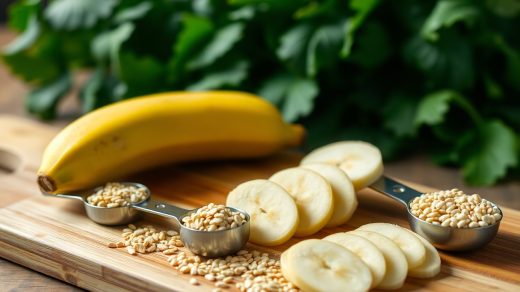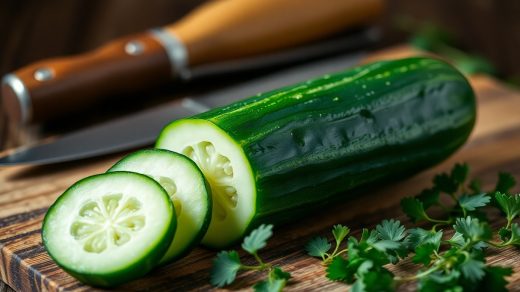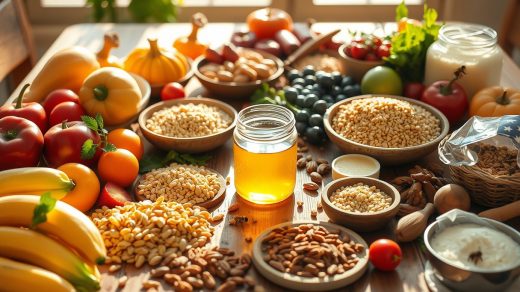It’s time to probe the world of protein-packed foods. Have you ever wondered which food is 100% protein? In this informative guide, we will explore the answer to this question and introduce you to some surprising sources of pure protein. By the end of this read, you’ll have a better understanding of which foods can give your body a protein boost like no other.
Key Takeaways:
- There is no food that is 100% protein: All foods have a combination of macronutrients including protein, carbohydrates, and fats.
- Some foods have a higher protein content: Foods like lean meats, fish, eggs, dairy products, tofu, and legumes are examples of foods that are rich in protein.
- A balanced diet is important: While protein is important for overall health, it is crucial to consume a variety of foods to meet all nutritional needs.

Defining Protein
What is protein?
For you to understand why certain foods are labeled as “100% protein,” it’s crucial to have a clear definition of what protein is. Proteins are large molecules made up of smaller units called amino acids. These amino acids are crucial for various bodily functions, such as building and repairing tissues, supporting immune function, and producing enzymes and hormones. In short, proteins are the building blocks of life.
Importance of protein in our diet
Protein is an crucial macronutrient that your body needs to function properly. When you consume protein-rich foods, your body breaks down the protein into amino acids, which are then used to support various bodily functions. Adequate protein intake is crucial for muscle growth and repair, maintaining healthy skin and hair, and supporting a strong immune system.
Plus, protein is also important for weight management because it helps you feel full and satisfied after meals, reducing the chances of unhealthy snacking. Incorporating sources of lean protein into your diet can help you stay energized and maintain a healthy weight.

High-Protein Foods
Lean meats
Assuming you are looking to increase your protein intake, lean meats are an excellent choice. Options such as skinless chicken breast, turkey, and lean cuts of beef or pork are high in protein and low in fat. These meats not only provide you with the protein your body needs for muscle growth and repair but also offer important nutrients like iron and zinc.
Fish and seafood
Fish, such as salmon, tuna, and mackerel, are packed with protein and heart-healthy omega-3 fatty acids. Seafood like shrimp, crab, and lobster are also great sources of protein. Including a variety of fish and seafood in your diet can help you meet your protein requirements while reaping the benefits of their nutrient-rich profile.
HighProtein: Fish and seafood are not only high in protein but also low in saturated fats, making them a healthy choice for your overall well-being.
Eggs and dairy products
HighProtein: Eggs and dairy products, such as yogurt, cheese, and milk, are rich in high-quality protein. They also contain important vitamins and minerals like calcium and vitamin D, which are important for bone health and overall immunity. Incorporating eggs and dairy into your diet can help you achieve your protein goals while enjoying the versatility and deliciousness they offer.
The higher protein content in eggs and dairy products can be beneficial for muscle building and weight management.
Legumes and beans
Lean: Legumes and beans, including chickpeas, lentils, and black beans, are plant-based sources of protein that are also high in fiber. These options are not only protein-rich but also contribute to your daily fiber intake, which is important for digestive health and weight management. Adding legumes and beans to your meals can help you diversify your protein sources and enjoy a range of nutrients in your diet.
Legumes: Legumes and beans are not only versatile in cooking but also budget-friendly and sustainable options for meeting your protein needs.
The Quest for 100% Protein
Is it possible to find a food with 100% protein?
Not all foods are created equal when it comes to their protein content. While many foods contain protein, finding a food that is 100% protein is quite a challenge. Most foods have a combination of macronutrients such as carbohydrates, fats, and proteins, making it difficult to find a food that is purely protein.
Debunking myths about high-protein foods
One common myth about high-protein foods is that they are all created equal. While some foods are indeed high in protein, they may also contain high amounts of unhealthy fats or added sugars. It’s important to choose high-protein foods that are also nutrient-dense and beneficial for your overall health.
Myths surrounding high-protein foods can lead to misconceptions about the best sources of protein for your diet. It’s crucial to do your research and choose a variety of protein sources to ensure you are meeting your nutritional needs while enjoying a balanced and healthy diet.
Animal-Derived Options
Whey protein isolate
Now, let’s talk about whey protein isolate. This form of protein is derived from milk and is one of the most popular options among fitness enthusiasts. Whey protein isolate undergoes further processing to remove almost all carbohydrates and fats, leaving you with a protein content of around 90-95% per serving. This high protein concentration makes it a great choice for those looking to increase their protein intake without consuming extra calories.
Egg white protein
Isolate.
Now, if you’re looking for a protein source that is highly bioavailable and easily digestible, egg white protein is a fantastic option. Egg white protein isolates are made by separating the yolks from the whites and then drying and processing the whites into a powdered form. This results in a protein-rich supplement that is free from cholesterol and fats, making it a lean protein source for your diet. Egg white protein is also rich in crucial amino acids, making it a complete protein for muscle recovery and growth.
Gelatin and collagen
On
Now, when it comes to gelatin and collagen, these protein sources may not be as high in protein content as whey or egg white protein isolates, but they offer unique benefits for your overall health. Gelatin is derived from collagen, a structural protein found in animal connective tissues, and both are known for their positive effects on joint health, skin elasticity, and gut function. Incorporating gelatin or collagen into your diet can provide you with these additional benefits alongside a moderate amount of protein.
For instance, collagen peptides are hydrolyzed forms of collagen that are easily absorbed by the body, making them a convenient way to boost your protein intake while supporting your skin, hair, and joint health. Including gelatin in your diet through homemade bone broth or collagen powders can also offer similar benefits, making these animal-derived protein sources a valuable addition to your nutrition regimen.
Plant-Based Alternatives
Once again, if you are looking to increase your protein intake with plant-based options, you have a variety of choices to consider. According to 100 Healthiest Foods With the Highest Protein, pea protein isolate is one excellent option.
Pea protein isolate
An excellent plant-based protein option is pea protein isolate. This protein source is derived from yellow split peas and is known for its high protein content. Pea protein isolate is not only rich in protein but also contains necessary amino acids, making it a complete protein source.
Rice protein
Protein derived from rice is another plant-based protein alternative that you can incorporate into your diet. Rice protein is hypoallergenic and easily digestible, making it a suitable option for individuals with dietary restrictions or sensitive stomachs.
PlantBased
Hemp protein
PlantBased, hemp protein is a popular plant-based protein source that is gaining recognition for its nutritional benefits. Hemp protein is derived from hemp seeds and is rich in protein, fiber, and healthy fats. Additionally, hemp protein contains all necessary amino acids, making it a complete protein source.
To enhance your protein intake with plant-based alternatives, consider incorporating pea protein isolate, rice protein, or hemp protein into your meals and snacks. These plant-based proteins not only provide your body with necessary nutrients but also support your overall health and wellness goals.
Comparing Protein Sources
Despite the vast array of protein sources available, not all proteins are created equal. In terms of comparing protein sources, several factors play a role in determining their quality. Let’s investigate into the key metrics used to evaluate protein sources and help you make informed choices for your dietary needs.
Protein efficiency ratio (PER)
For starters, the Protein Efficiency Ratio (PER) measures the weight gained by a growing animal per gram of protein consumed. It is a valuable metric for assessing protein quality and how well it supports growth and development. In the PER scale, egg protein scores a perfect 1.0, indicating its exceptional quality. Other high-quality protein sources include milk and fish, which also score high on the PER scale.
Biological value (BV)
For evaluating protein quality, another crucial metric to consider is Biological Value (BV). BV measures the proportion of absorbed protein that is retained in the body for growth and maintenance. It provides insights into how efficiently the body can utilize the protein from a specific source. Protein sources such as eggs and whey protein have high BV scores, indicating that they are easily digestible and provide a high proportion of crucial amino acids for bodily functions.
A ratio of 100 represents an ideal biological value, indicating that all the protein consumed is utilized efficiently by the body. This makes eggs a standout protein source due to their high biological value and excellent amino acid profile, making them a complete protein source crucial for various bodily functions.
Net protein utilization (NPU)
For a comprehensive view of protein quality, Net Protein Utilization (NPU) is another crucial metric to consider. NPU measures the percentage of ingested protein that is actually retained and used by the body. It provides valuable insights into how efficiently a protein source can be utilized to meet the body’s protein needs. Protein sources such as soy and quinoa have high NPU scores, indicating that they are efficiently utilized by the body.
This holistic view of protein quality, considering metrics like PER, BV, and NPU, can guide you in selecting protein sources that best meet your nutritional requirements. By understanding these metrics, you can make informed choices to ensure you are getting high-quality protein sources that support your overall health and well-being.

Final Words
On the whole, understanding that there is no food that is 100% protein is crucial in maintaining a balanced and healthy diet. Be mindful of, your body needs a variety of nutrients, including carbohydrates, fats, vitamins, and minerals, in addition to protein, for optimal function. By incorporating a diverse range of foods in your meals, you can ensure that you are meeting all your nutritional needs and supporting your overall well-being. Enjoy your meals knowing that you are nourishing your body with a diverse array of nutrients!
FAQ
Q: Which food is 100% protein?
A: Foods that are 100% protein include egg whites, chicken breast, turkey breast, tuna, tilapia, and tempeh.
Q: Are there any vegetarian options that are 100% protein?
A: Yes, tempeh is a vegetarian option that is 100% protein. Tempeh is a fermented soybean product that is a great source of plant-based protein.
Q: How can I incorporate high-protein foods into my diet?
A: You can incorporate high-protein foods into your diet by incorporating them into meals and snacks. For example, you can add chicken breast to salads, snack on tuna with whole grain crackers, or have a protein shake with egg white protein powder.



